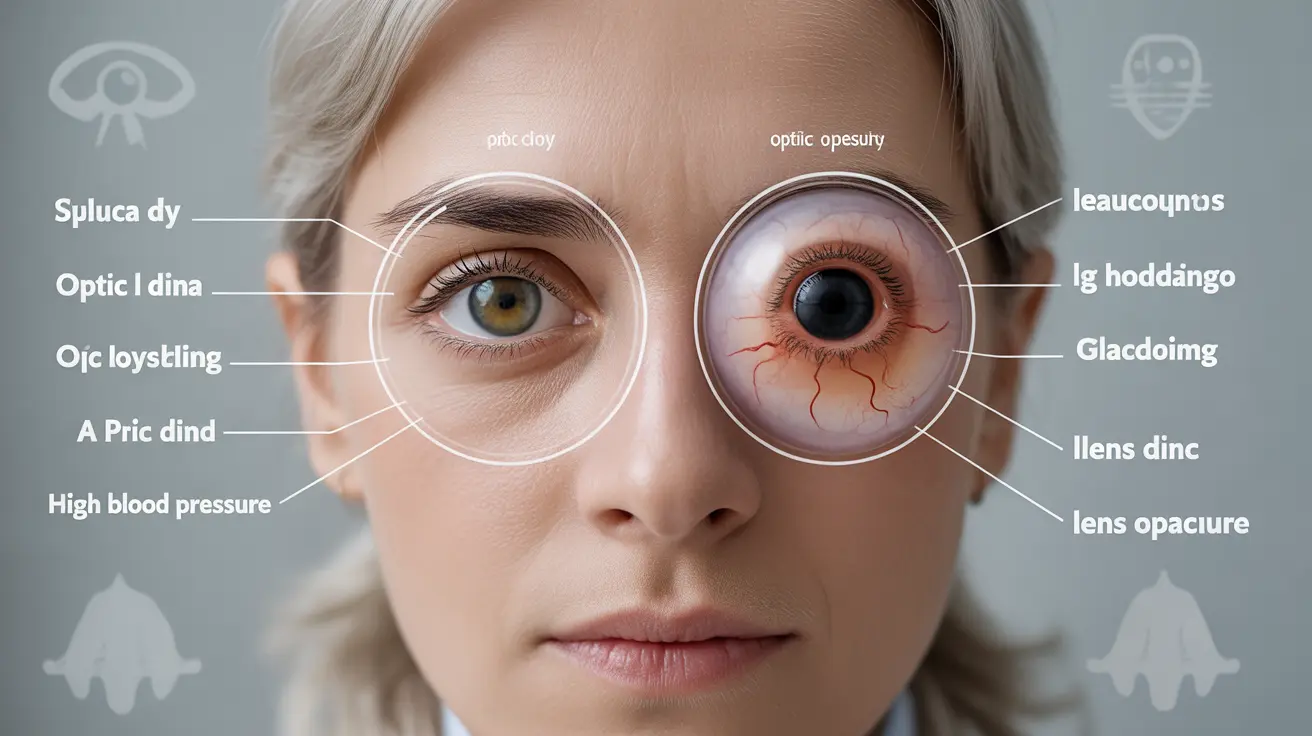Experiencing sudden blurry vision in both eyes can be alarming and potentially indicate a serious medical condition. Understanding the causes, recognizing warning signs, and knowing when to seek immediate medical attention are crucial for protecting your eye health and overall well-being.
This comprehensive guide will explore the various causes of sudden bilateral vision blurring, help you identify emergency situations, and explain available treatment options. Whether the cause is minor or severe, prompt evaluation and appropriate care are essential for preventing potential vision loss.
Common Causes of Sudden Bilateral Vision Changes
Several conditions can trigger sudden blurry vision affecting both eyes simultaneously:
Acute Medical Conditions
- Stroke or transient ischemic attack (TIA)
- Severe high blood pressure
- Diabetic eye complications
- Acute angle-closure glaucoma
- Multiple sclerosis flare-ups
Eye-Related Issues
- Severe eye strain
- Digital eye fatigue
- Bilateral retinal detachment
- Optic neuritis
- Severe dry eye syndrome
Warning Signs and Emergency Symptoms
Certain symptoms accompanying sudden blurry vision require immediate medical attention:
- Severe headache
- Face or body weakness
- Difficulty speaking
- Loss of balance
- Eye pain or pressure
- Seeing halos around lights
- Nausea and vomiting
Diagnostic Process and Medical Evaluation
When you experience sudden vision changes, your healthcare provider will typically:
- Conduct a detailed eye examination
- Check your blood pressure
- Assess neurological symptoms
- Review your medical history
- Perform imaging tests if necessary
Treatment Approaches
Treatment varies significantly based on the underlying cause:
Immediate Interventions
- Emergency medication for stroke
- Pressure-lowering drugs for acute glaucoma
- Blood pressure management
- Specialized eye drops
Long-term Management
- Vision therapy
- Regular eye examinations
- Lifestyle modifications
- Preventive medications
Prevention Strategies
While not all causes of sudden blurry vision are preventable, you can reduce your risk through:
- Regular eye examinations
- Blood pressure monitoring
- Diabetes management
- Digital screen breaks
- Proper eye protection
- Maintaining good eye hygiene
Frequently Asked Questions
What are the common causes of sudden blurry vision in both eyes?
Common causes include stroke, severe high blood pressure, acute glaucoma, diabetic complications, and severe eye strain. Some cases may also be related to multiple sclerosis, optic neuritis, or severe dry eye syndrome.
When should I seek emergency care for sudden blurry vision affecting both eyes?
Seek immediate emergency care if sudden blurry vision is accompanied by severe headache, weakness on one side of the body, difficulty speaking, eye pain, or nausea and vomiting. These symptoms could indicate a serious condition requiring urgent treatment.
Can a stroke cause sudden blurry vision in both eyes, and what other symptoms should I watch for?
Yes, a stroke can cause sudden bilateral vision changes. Additional symptoms to watch for include facial drooping, arm weakness, speech difficulties, severe headache, and balance problems. Any combination of these symptoms requires immediate emergency care.
How is sudden blurry vision from a detached retina different from blurry vision caused by eye strain?
Retinal detachment typically causes flashes of light, floating spots, and a curtain-like shadow in your vision, while eye strain usually causes temporary blurriness that improves with rest. Retinal detachment requires immediate medical attention, whereas eye strain can often be managed with rest and lifestyle changes.
What are the treatment options for sudden blurry vision due to acute glaucoma or other urgent eye conditions?
Treatment for acute glaucoma typically includes immediate pressure-lowering medications, laser therapy, or surgery. Other conditions may require specific treatments such as anti-inflammatory medications, specialized eye drops, or systemic medications depending on the underlying cause.




